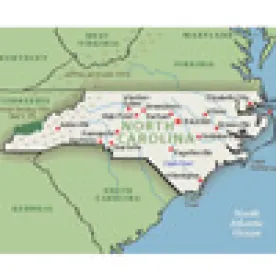The Court of Appeals issued a number of decisions today, while snow and ice ghosted the City of Raleigh. The Court addressed trespass to land, the availability of the "offset" defense to commercial loan guarantors. Let's take a quick look at a couple of today's holdings in the land use/real estate sphere:
Branch Banking and Trust Co v. Smith, et al., No. COA14-554 (February 17, 2015).
In this case, the Court of Appeals reverses a summary judgment ruling in the plaintiff bank's favor, ruling that the defendant guarantors to a commercial real estate loan are entitled to assert the offset defense of N.C.G.S. 45-21.36 where the following conditions are in play:
(1) a lender is pursing the guarantors over a deficiency resulting from a foreclosure sale of real estate,
(2) in which the lender is the winning bidder of the real estate for a sum less than the outstanding, guaranteed indebtedness.
Graham v. Deutsche Bank National Trust Co., No. COA13-881-2 (February 17, 2015) (linked).
Here, on rehearing, the Court of Appeals reversed its previous decision in the lawsuit and, in doing so, affirmed the trial court's mandatory injunction requiring the removal of portions of a house and a septic system that encroached on a neighboring residential parcel. In doing so, the Court determined that it need not follow the recent decision in Woodring v. Swieter, 180 N.C. App. 362 (2006) in which the Court determined that an action for trespass to property could not be brought by an individual who came into ownership after the trespass began. Rather, the Graham Court determines that it must follow "older" precedent that the "wrongful maintenance of an encroaching structure is itself a 'trespass each day it so remains' and constitutes a distinct wrong" such that ownership of the encroached-upon property is enough to state a claim and coming into ownership after the initial trespass act -- here, the construction of the encroaching house and septic system -- does not upend one's claim sounding in trespass.




 />i
/>i

